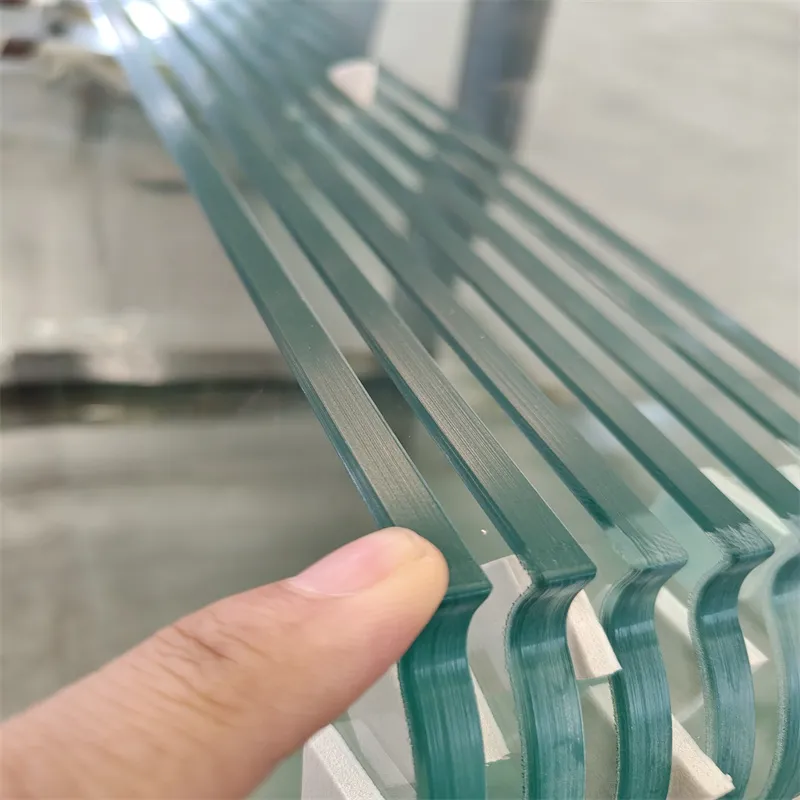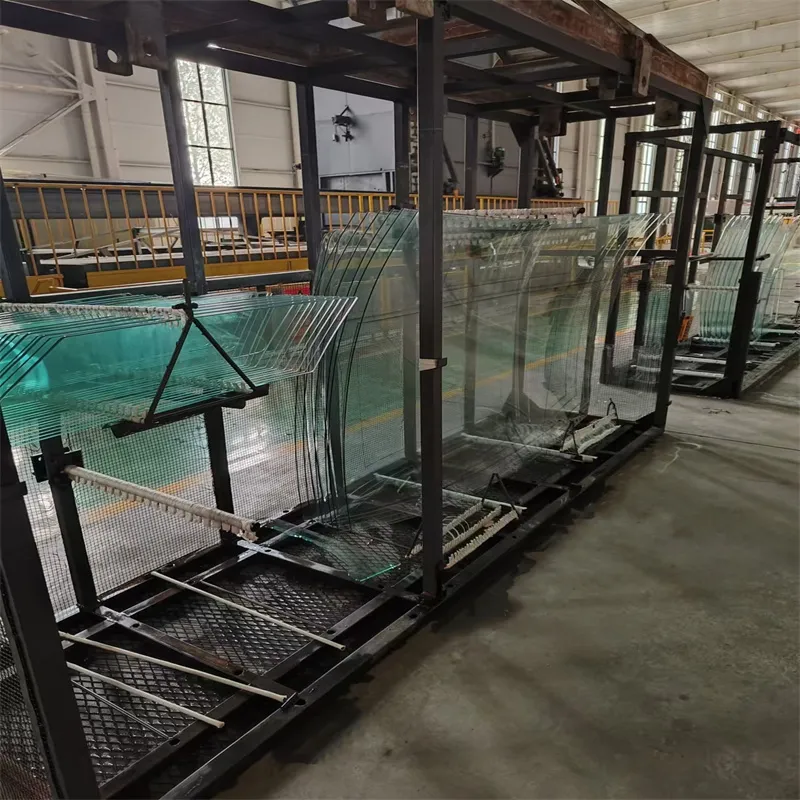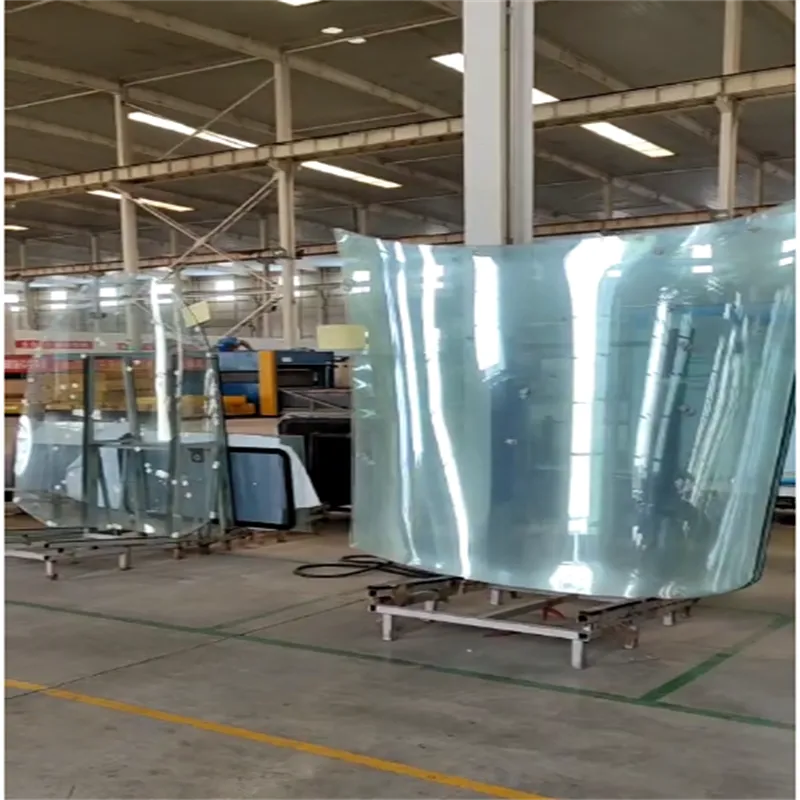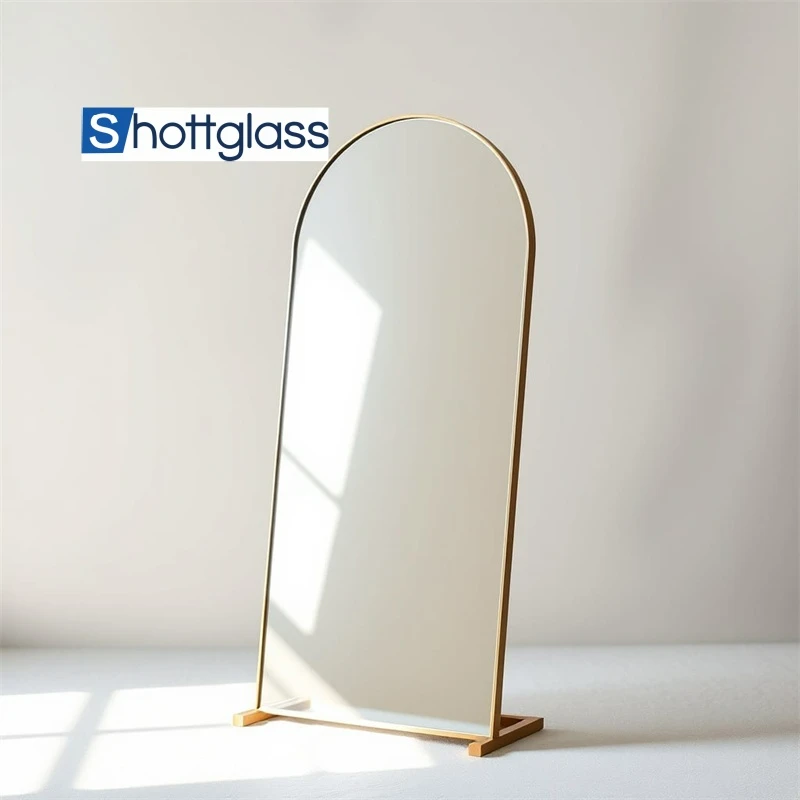Aug . 28, 2025 04:20 Back to list
Advanced Special Glass Solutions: Custom Types & Precision Cutting
In the demanding landscape of modern industry, the need for materials possessing extraordinary properties is paramount. This imperative has driven significant advancements in material science, particularly within the realm of glass manufacturing. Among these innovations, special glass stands out as a critical component, offering enhanced durability, optical clarity, and resistance to environmental stressors that conventional glass cannot match. This article delves into the intricacies of advanced glass solutions, with a particular focus on chemically strengthened glass, a product engineered to exceed the most rigorous industrial requirements. We will explore its manufacturing processes, technical specifications, diverse application scenarios, and the compelling advantages it offers across various high-stakes sectors.
The Evolution and Industry Trends of Special Glass
The global market for advanced glass is experiencing robust growth, driven by an escalating demand for high-performance materials in electronics, automotive, architecture, and specialized industrial applications. Industry reports project the market to reach substantial valuation by 2030, with a Compound Annual Growth Rate (CAGR) exceeding 6%. This growth is fueled by technological advancements that enable the production of `special glass types` with tailored properties, such as enhanced strength, optical precision, thermal resistance, and chemical inertness. Key trends include the miniaturization of electronic devices, the proliferation of touch-enabled interfaces, and the increasing adoption of sustainable building materials.
The demand for robust and reliable transparent materials has led to significant innovations in special glass manufacturing. Beyond basic float glass, modern industrial requirements necessitate glass with exceptional characteristics like impact resistance, scratch durability, and environmental stability. This includes various `types of special glass` such as borosilicate glass for high thermal shock resistance, quartz glass for UV transparency, and aluminosilicate glass for superior strength and scratch resistance, which forms the basis for chemically strengthened products. The ongoing research and development in this sector are focused on improving mechanical properties through surface treatments and chemical compositions, expanding the functional envelope of glass beyond its traditional roles.

Emerging trends also highlight the increasing importance of smart glass technologies, incorporating functionalities like electrochromic dimming, integrated sensors, and self-cleaning surfaces. These innovations are transforming industries from automotive to smart home devices, creating new market segments for specialized glass products. As such, manufacturers are continuously refining their capabilities, investing in advanced production lines to meet these evolving demands for `special varieties of glass`.
Decoding Chemically Strengthened Glass – Process Flow and Technical Specifications
The Manufacturing Process (Process Flow)
Chemically strengthened glass, often based on aluminosilicate or borosilicate compositions, undergoes a meticulous manufacturing process designed to impart superior mechanical strength compared to thermally tempered glass. The core of this process is an alkali-ion exchange reaction, which introduces a permanent layer of compressive stress on the glass surface.
- Substrate Selection: The process begins with high-quality aluminosilicate glass, known for its small sodium ions. This material is chosen for its specific composition which allows for efficient ion exchange.
- Precision Cutting and Edging: Before strengthening, the glass sheets are cut to precise dimensions using advanced `special glass cutting` techniques, often involving CNC machining for intricate shapes. Edges are polished to minimize stress concentrations.
- Pre-cleaning: The glass is thoroughly cleaned to remove any surface contaminants that could impede the ion exchange process.
- Ion Exchange Treatment: The glass is immersed in a molten salt bath, typically potassium nitrate (KNO₃), at temperatures below the glass's annealing point (typically 350-450°C). During this process, smaller sodium ions (Na⁺) within the glass surface are exchanged for larger potassium ions (K⁺) from the molten salt. As the larger potassium ions migrate into the glass surface, they occupy the sites previously held by sodium ions. Upon cooling, these larger ions are "packed" into a smaller volume, creating a highly compressed surface layer. This compressive stress layer effectively inhibits crack propagation, significantly increasing the glass's flexural strength and resistance to impact and scratches. The duration and temperature of the bath determine the depth of the compressive layer and the magnitude of the stress.
- Post-treatment and Quality Control: After ion exchange, the glass is rinsed and dried. Each batch undergoes rigorous testing to ensure compliance with international standards such as ISO 9001 for quality management, and performance standards like ANSI Z97.1 for impact safety and ASTM C158 for flexural strength. Quality checks include measuring surface compressive stress, depth of layer (DOL), and overall mechanical integrity.
Technical Specifications: Chemically Strengthened Glass
The unique properties of chemically strengthened `special glass` make it suitable for a wide array of demanding applications. Below are typical specifications:
| Parameter | Typical Value | Unit |
|---|---|---|
| Flexural Strength (Modulus of Rupture) | 600 - 900+ | MPa |
| Surface Compressive Stress | 400 - 1000+ | MPa |
| Depth of Compressive Layer (DOL) | 20 - 100+ | µm |
| Vickers Hardness (HV) | 550 - 700 | kgf/mm² |
| Density | 2.4 - 2.5 | g/cm³ |
| Refractive Index (nd) | 1.51 - 1.53 | |
| Operating Temperature Range | -50 to 250 | °C |
| Light Transmittance (visible) | >90% |
The service life of chemically strengthened glass is significantly extended due to its inherent resistance to surface damage and fracture. Under typical industrial conditions, with proper handling and maintenance, it can reliably perform for decades, often outliving the equipment it protects.
Unrivaled Advantages and Application Scenarios
The technical advantages of chemically strengthened special glass are particularly compelling for industries where durability, safety, and performance are non-negotiable.
- Superior Impact Resistance: Up to 6-8 times stronger than annealed glass of the same thickness, significantly reducing the risk of breakage from drops or impacts.
- Enhanced Scratch Resistance: The hardened surface, characterized by a higher Vickers hardness, provides excellent protection against abrasion, extending product lifespan and maintaining optical clarity.
- Chemical Stability: Offers good resistance to various chemicals, making it suitable for environments where exposure to corrosive substances is a concern. This is crucial for applications in petrochemical and chemical processing.
- Excellent Optical Clarity: Maintains high light transmittance and low haze, preserving visual integrity critical for displays, sensors, and protective covers.
- Thermal Shock Resistance: While not as high as borosilicate, its increased strength aids in resisting thermal gradients better than standard soda-lime glass, benefiting energy saving applications by maintaining structural integrity across temperature fluctuations.
- Safer Breakage Pattern: Unlike thermally tempered glass which shatters into small, blunt fragments, chemically strengthened glass tends to break into larger, less hazardous pieces, offering improved safety.
Target Industries and Application Scenarios
The versatility of this `special glass` extends across numerous demanding sectors:
- Petrochemical Industry: Used for sight glass, protective windows for instrumentation, and level gauges in corrosive and high-pressure environments, where corrosion resistance is paramount and transparency is critical for monitoring.
- Metallurgy: Observation windows for furnaces and high-temperature processing units. Its strength and moderate thermal resistance protect against molten metal splashes and thermal stress, enhancing worker safety.
- Water Supply & Drainage Systems: Protective covers for sensors, gauges, and control panels in water treatment plants and pumping stations. It resists harsh chemicals used in purification and offers long-term durability in wet conditions.
- Consumer Electronics: Screens for smartphones, tablets, smartwatches, and laptops, where scratch and impact resistance are crucial for daily use and device longevity.
- Automotive Sector: Infotainment displays, dashboard panels, and interior glass components, providing durability and a premium aesthetic.
- Medical Devices: Display covers for diagnostic equipment, patient monitors, and handheld devices, demanding excellent clarity and easy sterilization.
- Industrial Automation: HMI (Human-Machine Interface) touchscreens, control panel overlays, and sensor windows that require robustness against mechanical stress and environmental exposure.

Customization and Vendor Comparison in the Special Glass Market
Tailored Solutions and Customization Capabilities
In the B2B sector, off-the-shelf solutions rarely suffice for complex industrial requirements. Leading `special glass factory` facilities offer comprehensive customization services, allowing clients to specify precise dimensions, thicknesses (from 0.4mm to 8mm), edge finishes (e.g., polished, beveled, chamfered), and custom cutouts or holes. Advanced `special glass cutting` techniques, including CNC laser cutting and waterjet cutting, enable the creation of intricate shapes and tight tolerances essential for integration into sophisticated equipment. Furthermore, specialized coatings such as anti-reflective (AR), anti-glare (AG), anti-fingerprint (AF), and conductive (ITO) layers can be applied to enhance functionality, providing further value beyond mere mechanical strength.
The ability to provide truly bespoke solutions, from material composition adjustments to specific optical properties, differentiates top-tier manufacturers. This consultative approach ensures that the final `special varieties of glass` product is perfectly aligned with the application's unique operational demands and environmental challenges.
Key Considerations for Vendor Comparison
Choosing the right supplier for chemically strengthened `special glass` is crucial. A thorough vendor evaluation should encompass several critical factors:
| Comparison Criterion | High-Quality Vendor Characteristics | Lower-Tier Vendor Risks |
|---|---|---|
| Certifications & Compliance | ISO 9001, ROHS, REACH compliance, adherence to ASTM/ANSI standards. Demonstrable test data. | Lack of comprehensive certifications, unclear testing protocols, potential for non-compliance. |
| Customization Capability | Advanced CNC machining, laser cutting, optical coatings, wide range of glass types, engineering support. | Limited size/shape options, basic edge finishes only, no specialized coatings, minimal technical consultation. |
| Quality Control & Consistency | Strict QC at every stage (materials, processing, finished product), consistent performance, low defect rates. | Inconsistent product quality, higher defect rates, inadequate testing, unreliable performance. |
| Lead Time & Fulfillment | Transparent lead times, reliable delivery schedules, robust logistics network. | Frequent delays, poor communication, unreliable shipping, potential for production bottlenecks. |
| Technical Support & Experience | Decades of experience in `special glass types`, dedicated technical team, collaborative design process. | Limited industry knowledge, insufficient technical expertise, lack of proactive problem-solving. |
| Pricing & Value | Competitive pricing reflecting superior quality, long-term value, and low total cost of ownership. | Unrealistically low prices often indicate compromise on material quality or process, leading to higher replacement costs. |
Real-World Applications and Case Studies
Case Study 1: Industrial Control Panel Displays
A leading manufacturer of industrial automation systems required extremely durable display covers for their new line of HMI panels operating in harsh factory environments, exposed to dust, impacts, and frequent cleaning with industrial solvents. Traditional float glass and even thermally tempered glass exhibited unacceptable rates of scratching and breakage. By switching to chemically strengthened special glass (1.1mm thick), they observed a 70% reduction in display replacements over a two-year period. The enhanced scratch resistance maintained optical clarity for longer, improving operator visibility, while the superior impact strength drastically reduced downtime from accidental damage. Customer feedback highlighted improved perceived product quality and reduced maintenance costs.
Case Study 2: Marine Navigation Systems
For advanced marine navigation and communication systems, screens are constantly exposed to saltwater, UV radiation, and physical impacts in rough sea conditions. A specialized marine electronics company implemented chemically strengthened glass with an anti-reflective coating for their external displays. The corrosion resistance of the glass prevented etching from saltwater, and its robust surface withstood direct impacts from tools and equipment without fracturing. The anti-reflective coating ensured optimal readability even in bright sunlight. This application of special glass directly contributed to the reliability and safety of maritime operations, as critical information remained legible and the display panels remained functional under extreme stress.
Case Study 3: High-Security Glazing in Public Infrastructure
In a project for urban transit stations, transparent barriers and informational displays required exceptional vandal resistance and long-term durability. Laminated configurations incorporating chemically strengthened `types of special glass` were chosen for their ability to withstand repeated impacts and scratching attempts. While not bulletproof, the toughened layers significantly delayed penetration and reduced the risk of complete breakage, providing an effective deterrent and ensuring operational continuity. This application leverages the intrinsic strength of this `special varieties of glass` to enhance public safety and reduce maintenance costs associated with repair and replacement in high-traffic, high-risk environments.

Ensuring Trust: FAQs, Logistics, and Support
Frequently Asked Questions (FAQs)
- Q: How does chemically strengthened glass differ from thermally tempered glass?
A: Chemically strengthened glass gains its strength through an ion-exchange process that creates a deep layer of compressive stress, typically 6-8 times stronger than annealed glass. Thermally tempered glass is strengthened by rapid cooling, creating a surface compression layer that is less uniform and results in fragmentation into small, blunt pieces upon breakage. Chemically strengthened glass retains its original optical properties and clarity, whereas thermal tempering can introduce some optical distortion. - Q: Can chemically strengthened glass be re-cut or re-processed after strengthening?
A: No. Any cutting, grinding, or drilling performed after the chemical strengthening process will compromise the integrity of the compressive stress layer, significantly reducing or eliminating the enhanced strength. All fabrication must occur prior to the ion exchange treatment. This is a critical aspect when considering `special glass cutting` requirements. - Q: What thicknesses are available for chemically strengthened glass?
A: It can be manufactured in a wide range of thicknesses, typically from ultra-thin 0.4 mm up to 8 mm or even thicker for specific applications. The optimal thickness depends on the required strength, application, and overall design constraints. - Q: Is it suitable for outdoor applications?
A: Yes, with appropriate coatings (e.g., UV protection, anti-reflective), chemically strengthened glass is highly suitable for outdoor applications due to its excellent scratch and impact resistance, which helps maintain clarity and integrity against environmental elements. - Q: What is the typical lead time for custom orders?
A: Lead times for custom chemically strengthened `special glass` orders vary based on complexity, quantity, and specific processing requirements (e.g., coatings, intricate cuts). Standard lead times typically range from 3-4 weeks for production, following design approval. Expedited options may be available depending on manufacturing schedules.
Lead Time and Fulfillment
Our streamlined production capabilities as a dedicated `special glass factory` ensure efficient order fulfillment. For standard configurations and stock items, lead times are typically 2-3 weeks. For highly customized solutions involving complex `special glass cutting`, custom shapes, or specialized coatings, lead times generally range from 3-5 weeks from the final drawing approval. We maintain robust supply chain management and work closely with clients to meet project deadlines and logistical requirements, including international shipping with secure packaging to prevent damage.
Warranty Commitments and Customer Support
We stand behind the quality and performance of our chemically strengthened `special glass` products. All products are backed by a standard warranty covering manufacturing defects and material integrity for a period of 12 months from the date of purchase. Our dedicated technical support team is available to assist with product selection, technical specifications, and post-sales inquiries, ensuring a seamless experience from initial consultation through to long-term application. For urgent technical assistance, please contact our support line at [Company Contact Number] or email us at [Company Support Email]. We are committed to fostering long-term partnerships through unparalleled product quality and responsive service.
References
- Corning Incorporated. "Gorilla Glass Technical Specifications." Available at: `https://www.corning.com/gorillaglass/worldwide/en/technology.html`
- Glass for Europe. "The Environmental Performance of Glass in Buildings." Available at: `https://glassforeurope.com/uploads/publications/Environmental-Performance-of-Glass-in-Buildings.pdf`
- ASTM International. "Standard Test Methods for Strength of Glass by Flexure (Determination of Modulus of Rupture)." ASTM C158-02.
- ISO. "Quality management systems – Requirements." ISO 9001:2015.
-
Types of Reflective Glass
NewsNov.17,2025
-
What Is Dichroic Glass?
NewsNov.17,2025
-
Smart LED mirrors can have touch controls
NewsNov.17,2025
-
Laminated glass improves energy efficiency
NewsNov.17,2025
-
Insulated glass enhances building comfort
NewsNov.17,2025
-
Acid etched glass offers elegant privacy
NewsNov.17,2025
Related PRODUCTS














